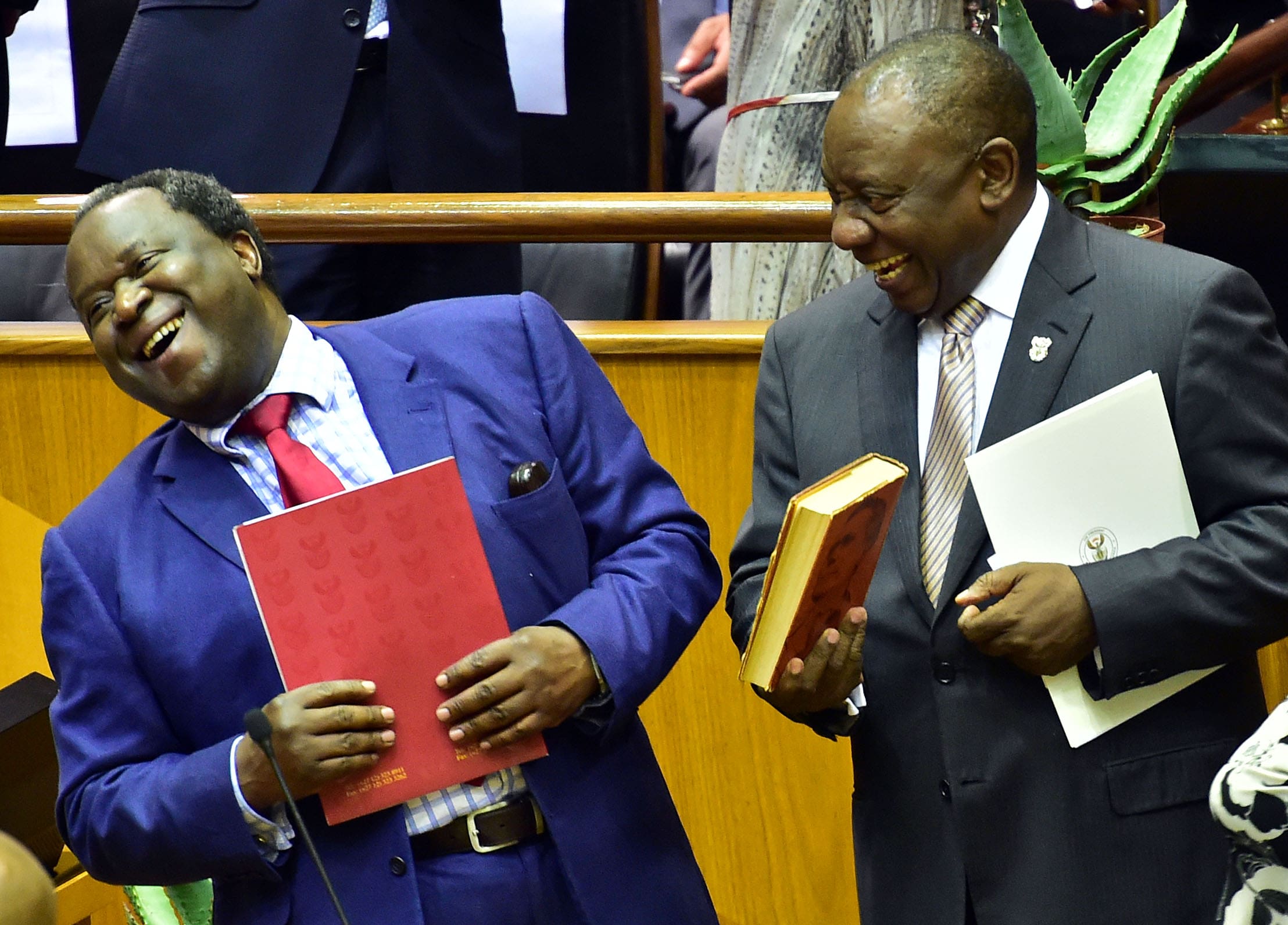Africa has lost one of its brightest stars — Tito Mboweni, former Finance Minister and South Africa’s first Black Reserve Bank governor, passed away at 65. His life was filled with achievements, from reshaping economic policy to cracking jokes on social media about cooking. Here’s a closer look at the man who balanced leading South Africa’s economy with a surprising amount of humour (and a few questionable stews).
1. Mr. steady the ship: Tito the Governor
Tito Mboweni made history in 1999 when he became the first Black person to serve as Governor of the South African Reserve Bank. He held the position for a decade, steering South Africa’s financial stability through one of its most challenging periods. His leadership during this time helped build up the country’s foreign reserves from under $10 billion to nearly $40 billion, a testament to his vision and steady hand.
2. South Africa’s minister of finance
In 2018, President Cyril Ramaphosa appointed Tito as South Africa’s finance minister, tasked him with restoring fiscal discipline and tackling corruption. Serving until 2021, Tito was known for his no-nonsense approach to economic reform, often clashing with political heavyweights overspending. His focus was always on balancing the books while ensuring that the country remained on a path toward long-term sustainability.
Shoe game on flick ! @tito_mboweni pic.twitter.com/9lhmoFkZ4x
— ANC SECRETARY GENERAL | Fikile Mbalula (@MbalulaFikile) December 21, 2019
3. The labour minister who got things done
Before becoming a financial wizard, Tito was South Africa’s first post-apartheid labour minister (1994–1999). His job? Ensuring workers’ rights while allowing the economy to grow. And boy, did he have his hands full! Balancing social justice with economic demands wasn’t easy, but Tito made it work, advocating for fair labour policies while keeping the country’s growth in check. He was the guy who kept the peace between the bosses and the workers.
4. The Pan-African dreamer
Tito wasn’t just focused on South Africa — he had big dreams for the whole continent. He believed in a strong, united African Union, one that could compete on the global stage. His vision extended beyond Africa’s borders, urging Africans in the diaspora to stay connected to their roots and contribute to the continent’s growth. In his view, a stronger African Union meant a stronger Africa. And who can argue with that?
5. No-nonsense on corruption
Tito wasn’t afraid to call out corruption when he saw it. He knew that post-liberation movements could sometimes blur the lines between governance and business, and he wasn’t having any of it. But he quickly pointed out that just because a few bad apples existed, it didn’t mean liberation movements were inherently corrupt. In typical Tito fashion, he demanded swift action on even the “smaller elements of corruption,” If you let the small stuff slide, it turns into a bigger mess.
Today, Friday 6 September 2024, I declare these gifts from @rajahsouthafrica pic.twitter.com/cs5BSiziiG
— Tito Mboweni (@tito_mboweni) September 6, 2024
6. Champion of intergenerational leadership
Throughout his career, Tito was a vocal advocate for involving younger generations in leadership roles. He believed the future of Africa depended on the energy and innovation of youth working alongside the wisdom of seasoned leaders. His commitment to this principle extended across the African continent, where he frequently mentored young leaders and promoted intergenerational dialogue as essential for sustainable governance.
7. The Twitter legend (and questionable cook)
Now, for the fun stuff — Tito was a Twitter king! He shared everything, from political opinions to his adventures in the kitchen. With over 1.5 million followers, some followed him for his sharp political takes, others for the laughs. Known affectionately as the “Minister of Cooking,” Tito loved sharing his culinary experiments on Twitter, where he quickly became a social media sensation.
One of his signature dishes? Pilchard stew. A meal that featured prominently in his posts, Tito’s stew included onions, tomatoes, green peppers, and of course, Lucky Star pilchards, which became a regular star in his recipes.
Lucky Star stew! ( I have no relationship with them but enjoy the fish). pic.twitter.com/nnOPOcjG5a
— Tito Mboweni (@tito_mboweni) June 6, 2019
His love for Lucky Star pilchards grew into something of a cultural moment. Since his passing, South African netizens have called on the brand to release a limited-edition tin featuring Tito’s face as a tribute to his culinary enthusiasm. Tito’s cooking adventures provided a humorous contrast to his otherwise serious public persona, reminding us that even the most esteemed leaders have their light-hearted moments.
Who did this? You people are bad bad bad!🤣🤣 pic.twitter.com/n2cB5W1f6w
— Tito Mboweni (@tito_mboweni) June 7, 2019
Tito Mboweni’s life was a leadership, integrity, and wit masterclass. He showed us that you can be serious about governing a country and still have time to share a laugh (and a dodgy recipe) with millions online.
His passing leaves a huge gap, but his legacy — both as a leader and as a human being who didn’t take himself too seriously — will live on. Rest easy, Tito. You’ve done more than your fair share — and the world is better because of it.




